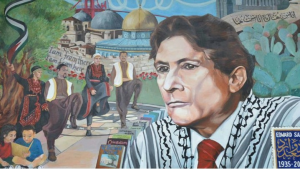SANSAD Public Forum
What’s at Stake in India’s Elections: Hypernationalism and its Victims
May 5: 2.00 pm – 4.00 pm
Room 7000 SFU Harbor Centre
515 Wes Hastings Street, Vancouver
Main Speaker: Navsharan Singh
Panelists: Harsh Trivedi and Lubna Moosa
Moderator: Dionne Bunsha
After five years of a hypernationalist government that spearheads the forces bent on transforming the India envisioned by the nationalist Gandhi and the Dalit leader Ambedkar and set on track by the constitution forged by Ambedkar, India is at a crossroads.
This forum will explore the developments in the past five years that have brought India to its current predicament, focusing on the threat of war, the military occupation in Kashmir, violence against Muslims and Dalits, political hijacking of state institutions, including police, judiciary, and education, arrests of human rights activists, attacks of journalists and journalism, and the use of media for repression.
Navsharan Singh is a women’s rights and human rights activist, who, works with the International Development Research Centre, Canada, in New Delhi. She has long been involved in the women’s movement in India and has written widely on women’s rights. She has been a core member of her father, Bhaji Gursharan Singh’s Amritsar School of Drama.She is the coeditor of Landscapes of Fear: Understanding Impunity. She has been travelling across India with the human-rights caravan, Karwan e Mohabbat to visit families of the victims of lynchings.
Dionne Bunsha is an award-winning author and journalist. She is the author of the acclaimed non-fiction book, Scarred: Experiments with Violence in Gujarat (Penguin India, 2006) about the aftermath of the communal violence in Gujarat. As a Senior Assistant Editor for Frontline magazine (www.frontline.in) in Mumbai, India, she travelled extensively to report on human rights, social justice and environmental issues. Dionne writes for The Guardian, The Hindu newspaper, the New Internationalist, Guernica, Toronto Star and The Tyee. Dionne was a Knight International Journalism Fellow at Stanford University in 2008-09. Currently, Dionne coordinates a project mapping indigenous knowledge for Lower Fraser First Nations.
Lubna Yusuf Moosa teaches journalism at Kwantlen Polytechnic University. She is the recipient of Navchetna Award for being the first Muslim woman to receive PhD in Communication and Journalism from the University of Mumbai. She worked for University of Mumbai as an Assistant Professor and served as a Reporter at All India Radio, before moving to Canada. As a reporter she reported for various beats and provided voice casts for national bulletins. She is actively involved in community service and volunteers for Options Community Services.
Harsh Trivedi is a student of political science and philosophy, recently graduated from the University of British Columbia. He writes a blog on international, Indian, Canadian, and US political affairs. He is a member of the board of SANSAD. He is concerned with issues of socialism, authoritarianism, and indigenous rights in India.
Contact/RSVP: Chin Banerjee, cbanerjee@telus.net
